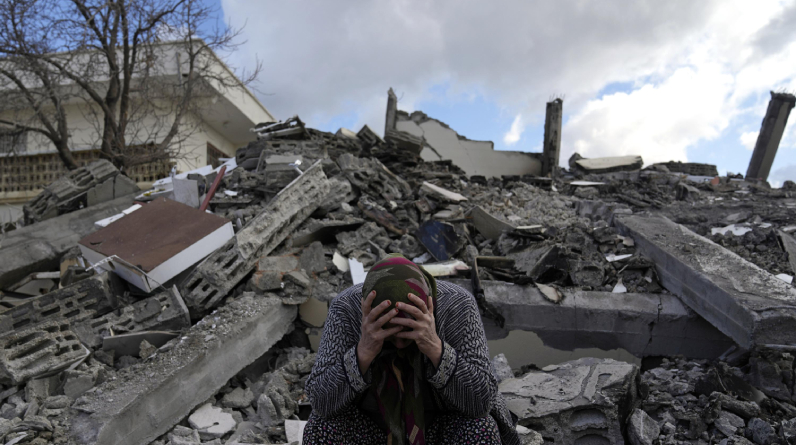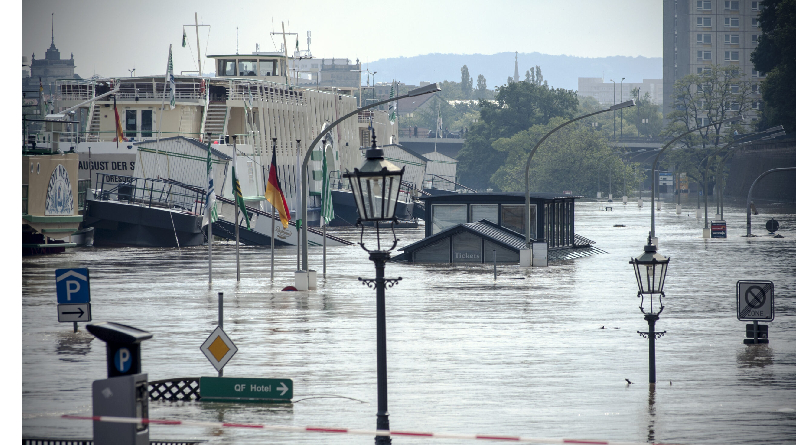How might the deadly earthquakes in Turkey affect the country’s government

In the aftermath of Monday’s devastating earthquakes, which struck southern Turkey and neighbouring provinces in Syria, it will take some time before we learn the full extent of the damage. Seismologists agree that these tremors are the worst to hit Turkey in modern times. More than 2,600 people had died as of this writing, but that number is expected to rise dramatically because hundreds or thousands of people are still feared to be buried alive. Their chances of making it through the night under the wreckage of their homes diminish as the cold winter night sets in. Then there’s Recep Tayyip Erdogan, the president of Turkey.
Some were already considering how the earthquakes might affect politics in Turkey as tragic images trickled in from the disaster zones. The most pressing issue at hand is the conduct of the upcoming parliamentary and presidential elections on May 14. If the necessary infrastructure is in place closer to the election date, and if Erdogan decides it is to his advantage to extend the state of emergency declared after the first quake and postpone balloting beyond the June 18 deadline, then elections may be delayed.
With year-on-year inflation at over 80%, the lira falling by 30% against the dollar last year, and the country’s current account deficit ballooning to almost 5% of GDP, Turkey is facing its worst economic crunch since Erdogan and his ruling Justice and Development Party (AKP) shot to power in 2002. Erdogan’s popularity is falling as a result of the economic crisis, and polls show that the opposition still has a chance of toppling him.
How the government deals with what is likely the biggest crisis it has faced so far is a litmus test. Most Turks attribute the AKP’s rise to the previous government’s inept handling of the massive 1999 earthquake that struck the country’s northwest. The fact that the secretive military — which was fiercely anti-Islamist — rushed to save its own before anyone else didn’t help matters.
The current government, on the other hand, quickly dispatched rescue teams, including 3,500 military personnel, after the first quake, measuring 7.8 on the Richter scale and occurring at 4:17 a.m. local time, hit. Announcing seven days of national mourning, the ever-pragmatic Erdogan quickly shed his prickly nationalism to welcome aid from Western countries, including from Israel and Turkey’s arch-rival Greece.
The “tarikats,” or Islamic charitable organisations and fraternities, are being organised to support the AKP.
About 20,000 people were killed when an earthquake hit the industrial centre of Turkey in 1999. Wolfango Piccoli, co-president of the London-based risk consultancy outfit Teneo, noted in a research note that one of the poorest and least developed regions of the country was struck by the quakes on Monday. Tourists from abroad are a significant source of revenue for Turkey, and Piccoli noted that “they did not affect areas favoured by foreign tourists.” He believes that “a sense of national solidarity under Erdogan’s leadership” and “an effective emergency response may even strengthen the AKP leader.”
Eighty percent of the media is owned by Erdogan’s business associates, so any response from the government will be portrayed favourably. A nation in mourning is not the place for opposition sniping so soon after the tragedy.
However, public opinion may soon change if reports that rescue teams are late are accurate.

Help requests flooded social media. A member of parliament for the nationalist opposition Good Party, Metin Ergun, has described the situation in the province of Hatay, which borders Syria and is one of the worst hit. Ergun stated that he had heard cries of “help us” coming from underneath the debris. “There aren’t any residents left in Hatay. The entire world is in ruins. In this area, power is out. Ergun tweeted that the rescue teams were “highly inadequate.”
Also Read :What piece of technology can’t you imagine college life without
Locals in Pazarcik township, the first quake’s epicentre, dug through the rubble with their bare hands to reach their loved ones. An aid worker named Mehmet Gedik said on an independent TV channel that 90% of the homes in a village of 350 had been destroyed. Those in need of food and water are scarce. No one has arrived despite our repeated calls to the police and the state-run disaster relief agency AFAD. At least thirty of our people are feared to be buried alive under the debris. The police advised us to “make do with your own resources.”
Under the AKP’s two-decade rule, unprecedented corruption has arisen, raising concerns about building codes and safety standards, just as it did in 1999. Some of Erdogan’s contractor buddies, dubbed the “Gang of Five,” made off with billions of dollars from government contracts. Kemal Kilicdaroglu, the main opposition leader, who is widely expected to run against him, has vowed to bring them down.
Erdogan has promised early retirement for 2.3 million workers, massive energy subsidies, and the construction of half a million homes for low-income families in an effort to stimulate the economy before the election. The massive costs of Monday’s tragedy are unlikely to be mitigated by cash injections from friendly Gulf regimes and cheap energy from Russia, which helped to grease the spree.
It will be difficult for the government to justify sending aid to northern Syria, which is occupied by the Turks, as public sentiment against the nearly 4 million Syrian refugees continues to rise. On Monday, a series of earthquakes struck Syria, killing an estimated 500 to 900 people. Most of the casualties occurred in the rebel-held northwest of the country. The bright side for the Kurds in northeastern Syria, which saw minimal damage, is that Erdogan is even less likely to invade as he has been threatening.
The coming days will show how well Erdogan continues to manipulate negative situations to his advantage, as he did after the failed coup attempt in 2016. One theory is that he is already exploiting the situation to sow discord among the opposition. Instead of calling Kilicdaroglu to brief him on the relief effort, he spoke with Meral Aksener, the head of the nationalist opposition Good Party. Aksener has been very public about her disapproval of Kilicdaroglu and her willingness to work with the Kurds, whose votes are crucial to the success of the opposition. She has been accused by some of making secret agreements with the president. The phone call they received today may have confirmed their worst fears. The magnitude of Monday’s catastrophe, however, suggests that even Erdogan may be in over his head.
Leave a reply
You must be logged in to post a comment.







